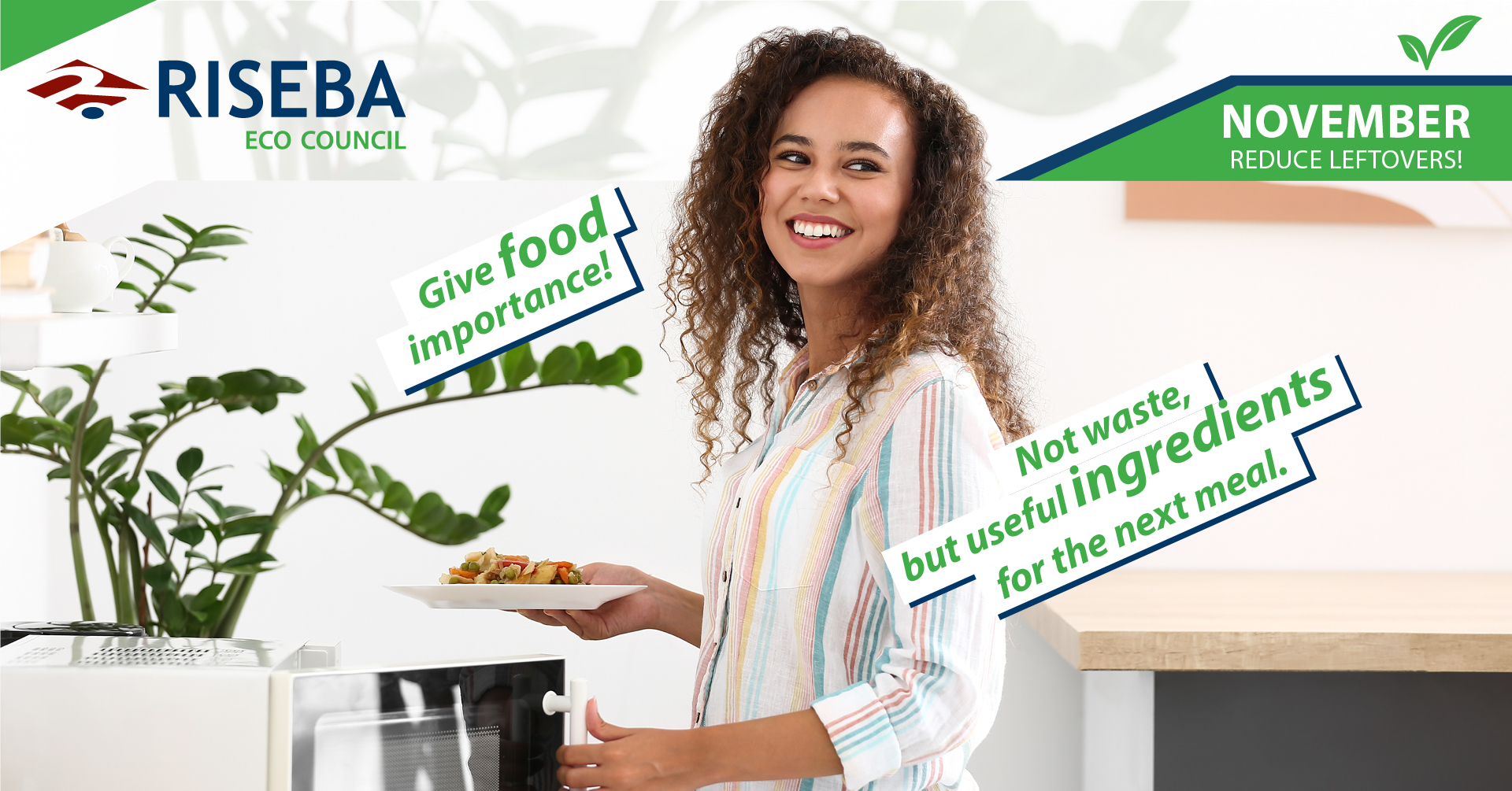NOVEMBER – Give food importance

Not waste – but useful raw products for your next meal!
Meal planning, sensible food purchasing, using leftovers and storing food properly can not only reduce food waste, but also save money. Nearly 57 million tonnes of food waste (127 kg per capita) worth around €130 billion is generated in the EU every year, according to Eurostat figures for 2022.
More than half of food waste in Europe is generated by households – 55%. To reduce food waste and money spent on everyday life, we need to be more mindful and pay attention to our food consumption habits. It is important to remember that food waste cannot be avoided completely, but everyone can reduce it by making small changes in their daily routine. For example, planning your weekly meals and buying products that are close to their expiry date can help you save a lot.
Plan your daily meals and give products a second chance
Meal planning is not time-consuming on a daily basis, but has various benefits, such as avoiding impulse buying. Plan not only the meals you will prepare at home, but also the days of the week and the meals you will eat out. When choosing fruit or vegetables, do not judge how visually ‘pretty’ or ‘ugly’ they are. If you can buy a fruit or vegetable with slightly damaged skin for a cheaper price, take advantage of this, as it will not change the nutritional value or taste of the produce.
Use leftovers and existing stocks
For lunch, you can eat what’s left over from the previous day’s dinner – it’s that simple! Top up leftovers from the previous meal with a product you already have in the fridge. It’s a good idea to take stock of your kitchen shelves, fridge and freezer before you go to the shops, as you’re more likely to find products that you can still use for future meals, avoiding unnecessary spending. Recipes can be confusing with too many ingredients, but not all of them are necessary. For example, if a recipe calls for parsley but there is dill in the freezer, substitute. Let improvisation take over!
The compost guide
Did you know that food scraps and other organic waste make up about half of what we throw away? There are other ways to take care of this waste than just throwing it in household waste containers, thus reducing the amount that ends up in landfills. It’s time for urban compost! Composting is actually very simple, and even if you live in a small apartment, you can still become an urban composter.
So what is compost?
It is an organic material that can be added to the soil to help plants grow. Composting is the accelerated production of this organic material. Instead of throwing away this organic waste, such as food scraps and yard waste, composting it means that it will not end up in landfills and will not decompose into methane. Why is this important? Because once methane enters the atmosphere, it stays there for about 12 years. Methane is not only a greenhouse gas, it also contributes to the formation of ground-level ozone, one of the most important air pollutants in Europe and one of the most harmful to human health and the environment. At the same time, composting does not produce methane and other problematic by-products, so it’s one more thing we can do for the planet.
There are three important components of good compost:
- dead leaves, twigs, coffee grounds and other “brown” or dark waste;
- the compost should be moist, but not wet or soggy;
- grass clippings, vegetable peelings, fruit cores and other “green” waste.
Information: ziemellatvija.lv & www.zerowastelatvija.lv